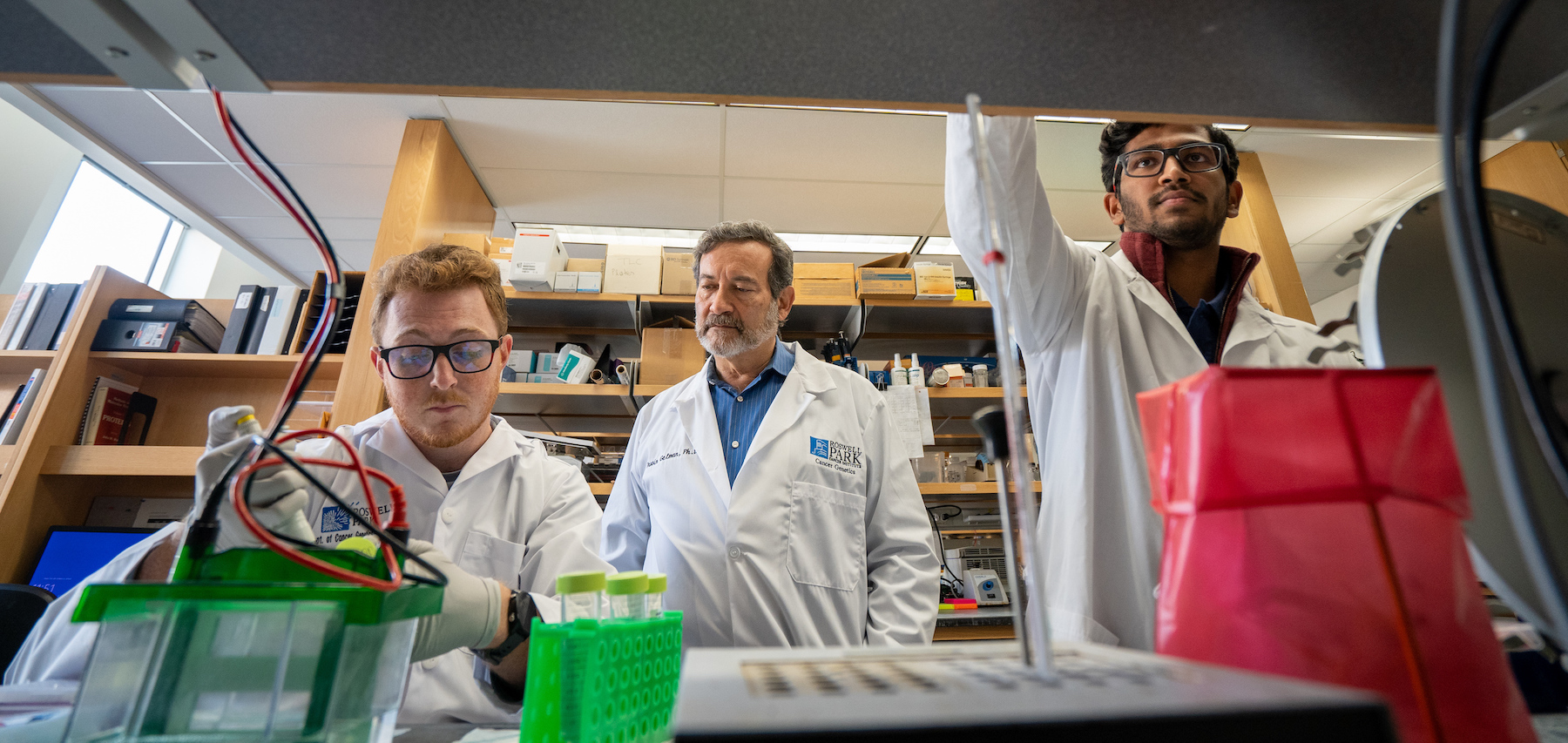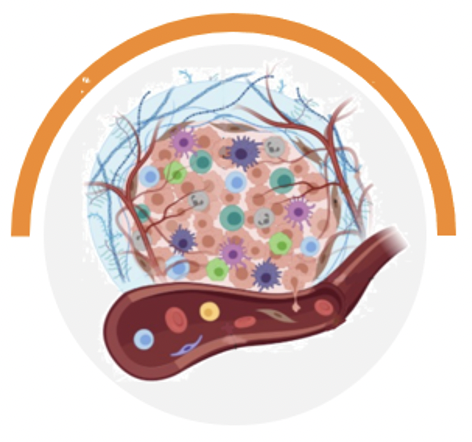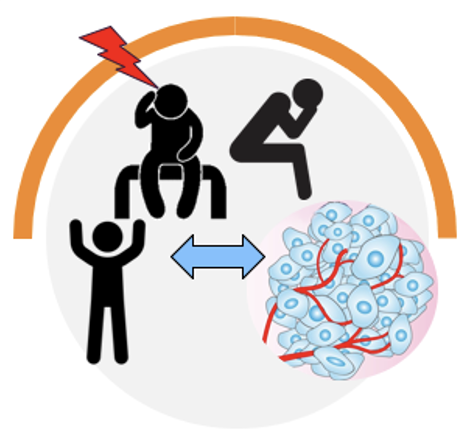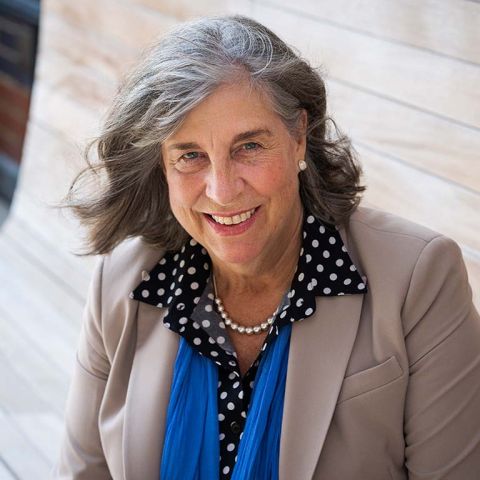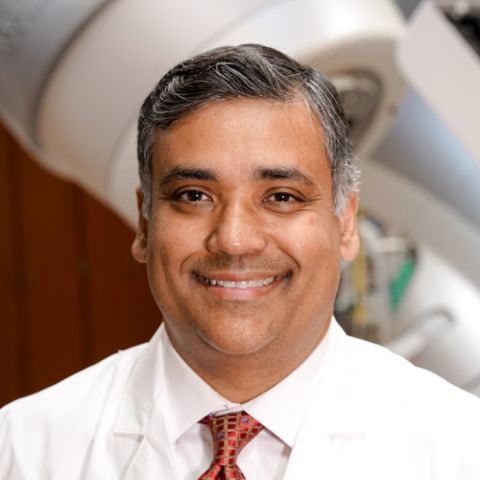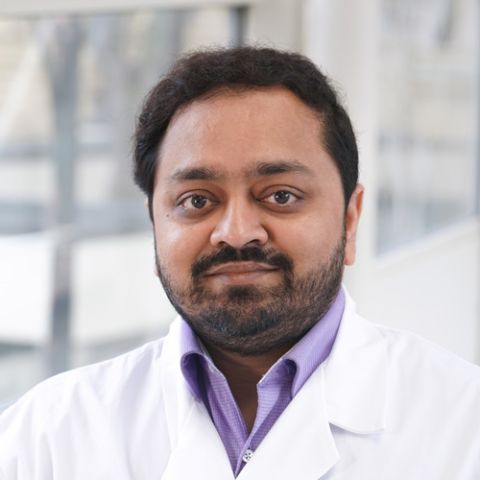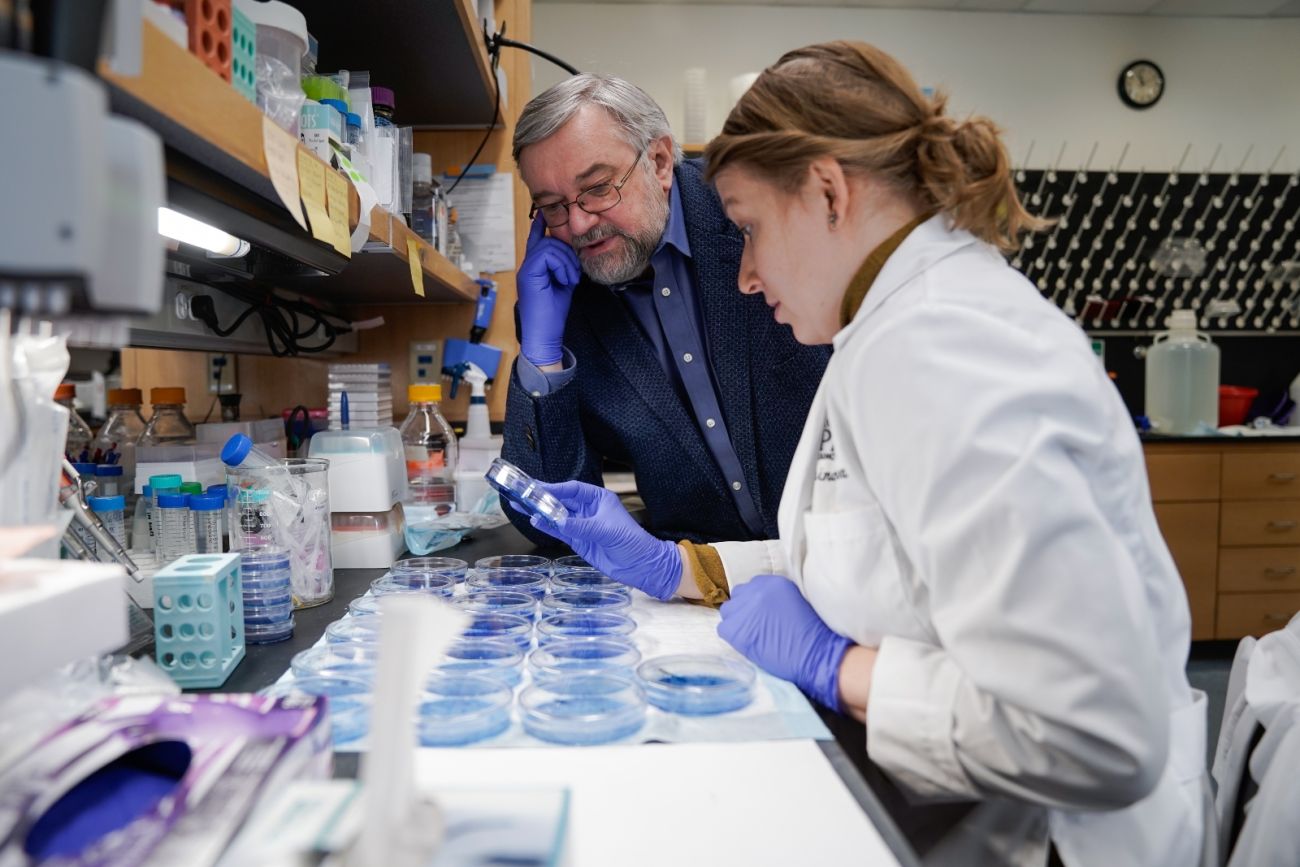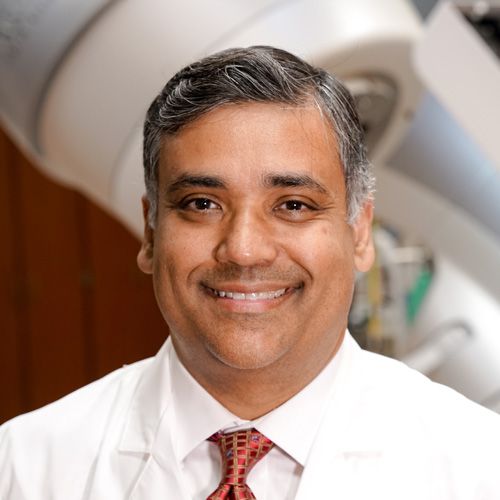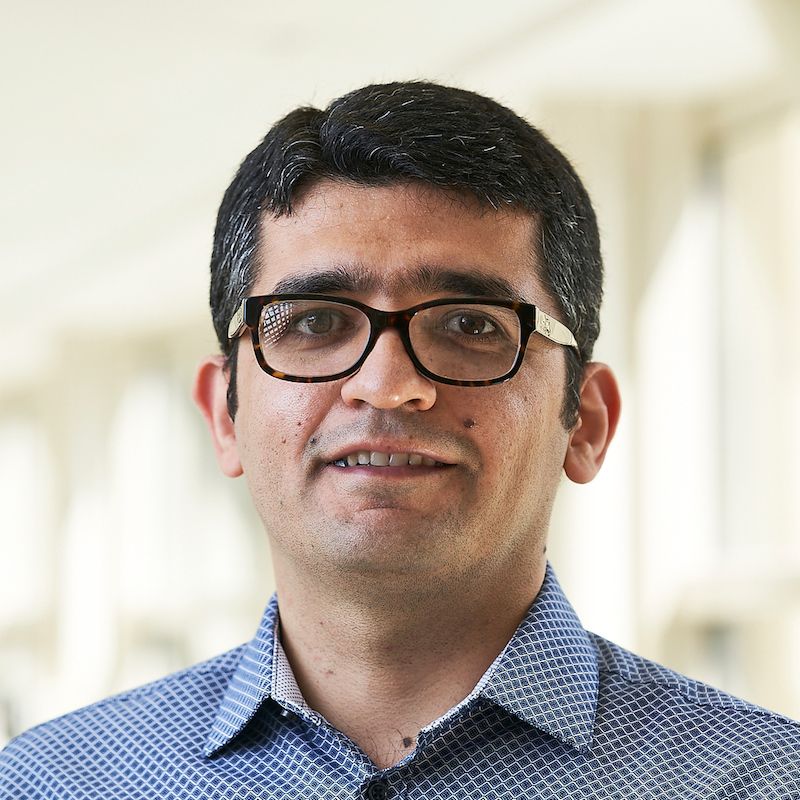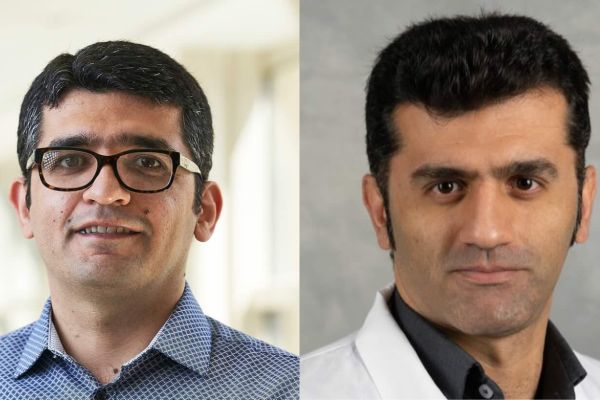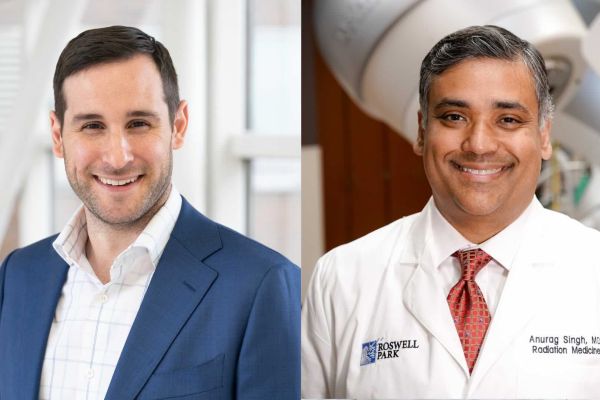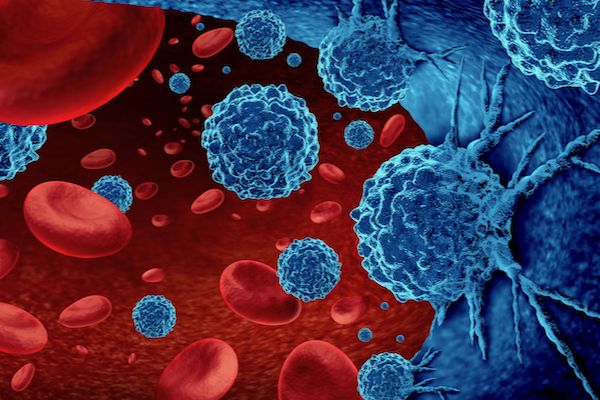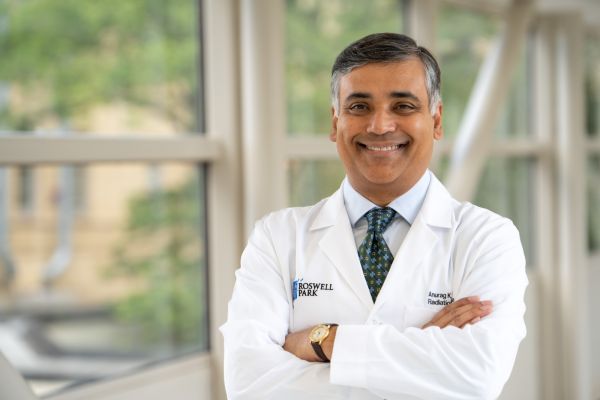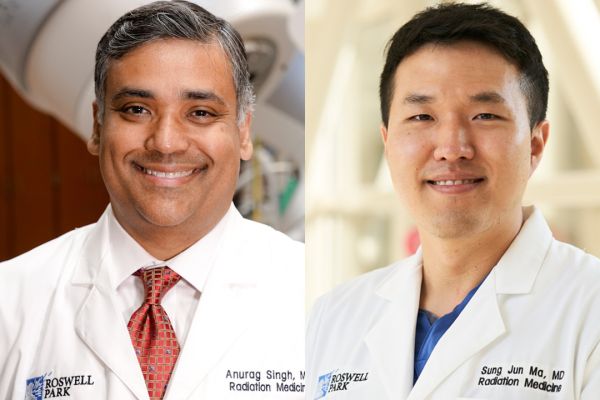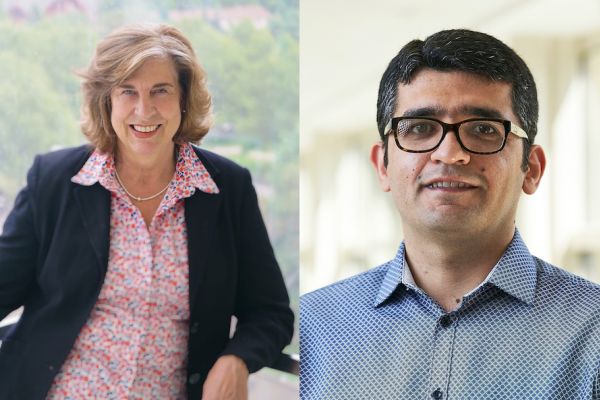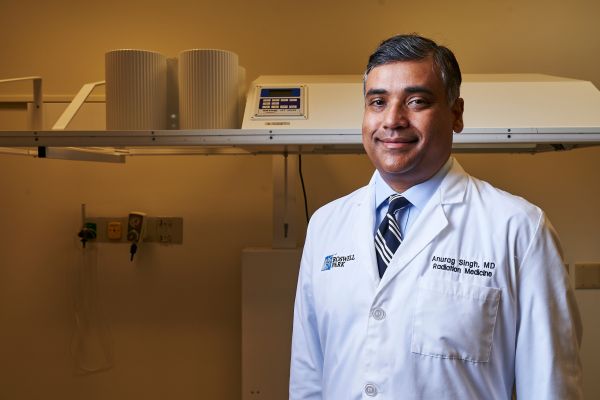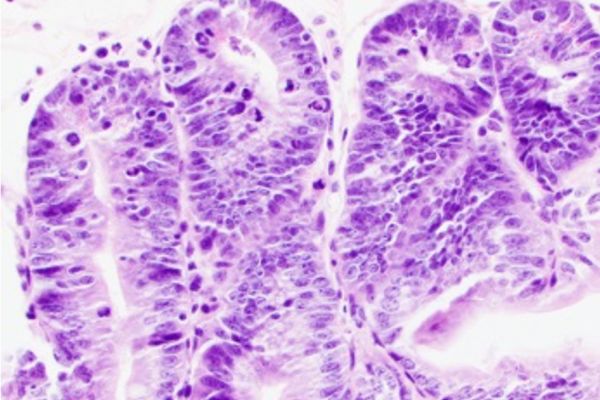Understanding the impact of cellular and organismal stresses on cancer cell mechanisms and impact on cancer therapies and therapy-related consequence
Our vision: To develop a multi-scale assessment of mechanisms by which stress affects tumor progression and to develop strategies for targeting stress to improve cancer outcomes.
Our premise is that stress is a clinically relevant, modifiable factor that has been relatively understudied in cancer patients, but which has a detrimental effect on overall disease outcome. Differences in exposure to stressors and in individual responses to stress are potential sources of disparities between patients’ cancer experiences. CSB research is focused on a multi-scale assessment of stress from intracellular molecular stress signaling pathways to systemic stress responses that affect tumor progression and suppress the anti-tumor immune response.
Our goal is to develop strategies for mitigating the negative effects of stress in high-risk individuals to improve patient responses to therapy and long-term outcomes
Our approach is to use the multidisciplinary expertise of our diverse group of investigators to study the role of stress in cancer progression, therapeutic response, patient outcomes, and quality of life.
Our aims are designed to:
Decipher the impact of tumor cell-intrinsic molecular stress pathways.
Identify and characterize stress responses generated within the tumor ecosystem and organism.
Evaluate stress as a risk factor in cancer outcomes and develop novel therapies that target stress pathways.
Program leaders
About the Cancer Stress Biology Research Program
The Cancer Stress Biology (CSB) Research Program is focused on scientific discoveries related to cancer and stress, including those related to the cancer burden in our catchment area, as well as providing unique educational opportunities and exciting new therapeutic strategies that can reduce disparities in outcomes to benefit patients and survivors.
Program goals
- The key goal of the Cancer Stress Biology Program is to understand the mechanisms of cellular and organismal stresses and use them to improve the outcome of existing cancer therapies and to develop new and improved treatment approaches.
- Understand the interplay between different types of stresses at the organismal level including their effect on metabolism, the immune system and tumor development and response to therapy
- Understand the mechanisms of how tumor cells can exist in constant stress, such as metabolic dysregulation, elevated level of DNA damage, disorganized chromatin, altered circadian regulation, etc.
- Develop novel cancer treatment strategies based on biophysical principles that target a key aspect of tumor cell vulnerability – existence in constant stressed conditions
- Uncover mechanisms and approaches to protect normal cells, but not tumor cells, from stresses associated with cancer treatment
- Develop novel strategies to prevent and treat cancer therapy-induced bystander injury
- Bring them to clinical fruition by facilitating interactions with clinicians and basic scientists in other programs
- Provide a training ground for these novel treatment approaches
We coordinate this research across three program themes:
- Discovery and development of new treatment approaches to target major tumor cell vulnerability – existence in permanent stress
- Effect of stress in immune system and immune modulating effects of different types of stress
- Molecular mechanisms of different types of cellular stress and their interactions
Roswell Park is the only comprehensive cancer center with a program devoted to a comprehensive study of stress. While our program has a history of strong basic science work investigating stress mechanisms, we are expanding our focus into how the effects of stress are mediated systemically, including clarifying how nerves regulate anti-tumor immunity. This work is providing new targets not only for therapeutic intervention as well as working towards identifying biomarkers that could be used to assess levels of chronic stress in patients.
New clinical applications include the evaluation of social determinants of health as a source of stress, as well as stress amelioration in combination with radiation and/or immunotherapy. The result is a thriving research program that has grown significantly in recent years.
- 36 researchers
- 8 new investigators
- 13 departments represented
- 9 team science awards
- More high-impact publications
- Major increase in clinical trial accruals
- Double the amount of research funding
In terms of Community Outreach and Engagement, the CSB places a strong emphasis on examining the basic and translational mechanisms linking social determinants of health to cancer outcomes. CSB faculty received a new, multi-institutional, grant to study how chronic stress due to social stressors including racial discrimination, neighborhood disorder, and crime are linked to accelerated epigenetic aging. Other new CSB research links stress from financial concerns to significantly decreased survival. This research also resulted in practice-changing acceptance by the NCCN Guidelines for the use of single-fraction stereotactic body radiation therapy in lung cancer which mitigates stressful financial and logistical barriers among rural patients who would otherwise have to travel long distances every day for multi-fraction regimens.
Venues for program interactions:
CSB members interact using several mechanisms:
- A CSB Program Meeting is held approximately 6 times per year, in which the Leaders share news about CCSG Shared Resources, CRTEC or COE and new funding opportunities, followed by a research update from one or two members. We seek collaborative opportunities at these meetings and pathways toward new clinical applications.
- Weekly academic/graduate student seminars where trainees present their work throughout the academic year.
- Our “No Stress Cancer Stress” grant presentations where members solicit advice and criticism of new grant proposals prior to submission and
- Smaller and multiple “working group” meetings to discuss research data, new grants, and publications.
Those interested in participating can contact Program Administrator Sarah Marcy at 716-845-3055 or Sarah.Marcy@RoswellPark.org.
Research spotlights
Cancer Patients Who Are Most Worried About Finances Shown to Have Worse Outcomes
“The association we found was very strong, and very concerning. If you are worried about your finances, your risk of dying is roughly double.”
Roswell Park Suggests New Strategy for Controlling Graft vs. Host Disease in Blood/Marrow Transplant Recipients
“We’re looking for a Goldilocks effect — a ‘just right’ zone where acute GVHD is diminished without decreasing the GVT effect.”
More research highlights
Contact us
Sarah Marcy
Program Administrator
Phone: 716-845-3055
Email: Sarah.Marcy@RoswellPark.org
Bruce Specht
Department Administrator
Phone: 716-845-1065
Email: Bruce.Specht@RoswellPark.org
